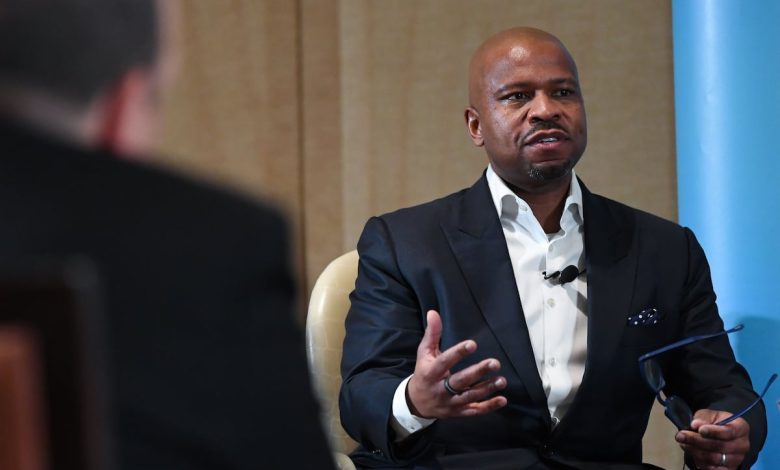Boeing ousts defense chief Ted Colbert as firm seeks to right itself

Boeing executive Ted Colbert is out as head of the troubled firm’s defense sector, effective immediately, the company announced Friday.
Kelly Ortberg, Boeing’s chief executive, said in a memo to employees that Steve Parker will temporarily lead Boeing Defense, Space and Security until a permanent replacement for Colbert is named. Parker is the chief operating officer for Boeing’s $32.7 billion defense sector.
In the memo, Ortberg thanked Colbert for 15 years of service to Boeing. But he also spoke about the need for Boeing — which has had a series of prominent failures over the last year — to do better.
“At this critical juncture, our priority is to restore the trust of our customers and meet the high standards they expect of us to enable their critical missions around the world,” Ortberg said. “Working together we can and will improve our performance and ensure we deliver on our commitments.”
Colbert took over Boeing’s defense sector in March 2022 after running Boeing Global Services. Later that year, he reorganized it amid steep revenue losses and quality concerns.
Colbert also stuck firm to the company’s commitment to no longer agree to fixed-price contracts with the Pentagon. Such contracts have led to billions of dollars in losses for Boeing, leading the company to swear them off, even if it meant passing on some major programs like the Survivable Airborne Operations Center, or SAOC.
At the Farnborough Air Show in England in July, Colbert told reporters that the Air Force’s plan for SAOC would have required Boeing to agree to fixed-price elements and other components it felt were unacceptable. He said if the Air Force were to require fixed-price deals for its new collaborative combat aircraft autonomous drones, Boeing would similarly steer clear of that program.
“If it’s a fixed-price development program that requires a ton of maturity … that is a recipe for failure,” Colbert said.
But losses at Boeing Defense continued during Colbert’s tenure. The sector lost $1.8 billion in 2023 and is down $762 million so far in the first half of 2024.
Colbert’s removal marks Ortberg’s first major management change since taking the reins of Boeing last month.
And it comes nearly two weeks after Boeing’s Starliner space capsule returned to Earth from the International Space Station without its crew amid safety concerns.
During Starliner’s June 5 flight to the space station, engineers observed several helium leaks and problems with its thrusters, according to NASA. NASA and Boeing engineers spent nearly three months testing thrusters and reviewing data to try to figure out how to fix the problems. But on Aug. 24, NASA determined it was too risky to fly the two astronauts home on Starliner and opted to instead bring them home on a planned SpaceX mission next February.
Ortberg is trying to put Boeing back on course after years of quality and safety troubles with aircraft such as the Max airliners, the KC-46 Pegasus refueling tanker and the new Air Force One presidential transport planes, which upended the company’s once-strong reputation as an aerospace giant.
Boeing is also reeling from a massive strike declared Sept. 13 by tens of thousands of its machinists, which is also impacting the firm’s defense programs like the KC-46. Ortberg has been speaking directly with workers to try to find a way to resolve the disagreement over issues such as pay and end the strike, the company said. A lengthy strike would harm its production, deliveries and operations.
In July, Boeing pleaded guilty to conspiracy to defraud the United States over charges stemming from the crashes of two 737 Max aircraft. Then, in January, the door plug of another 737 Max blew out midflight, with videos of the frightening scene aboard going viral. The incidents prompted congressional hearings into Boeing’s safety problems.
Stephen Losey is the air warfare reporter for Defense News. He previously covered leadership and personnel issues at Air Force Times, and the Pentagon, special operations and air warfare at Military.com. He has traveled to the Middle East to cover U.S. Air Force operations.







